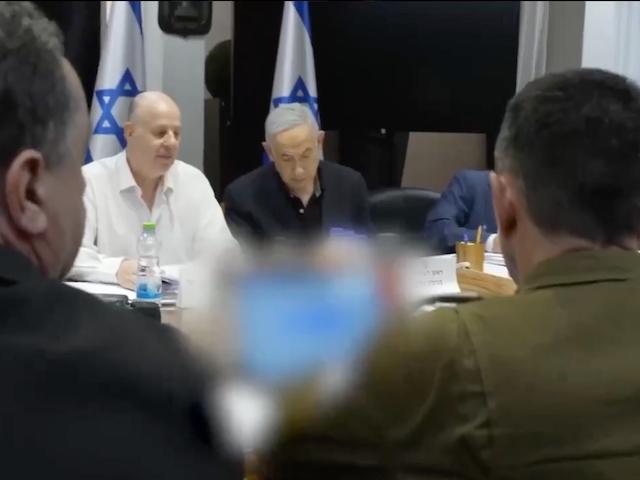In a stark escalation of regional tensions, Israel’s security cabinet, led by Prime Minister Benjamin Netanyahu, has authorized a decisive response to a devastating rocket strike in the Golan Heights. This attack, attributed to the Lebanese armed group Hezbollah, resulted in the tragic deaths of 12 children and has sparked a fervent demand for justice and retribution.
The Attack: Unveiling the Evidence
The assault occurred amidst a massive barrage of over 40 rockets, indiscriminately fired at Israeli territory by Hezbollah, an Iranian-backed militant organization. Radar and satellite imagery have conclusively traced the origin of the missiles to Lebanon. Furthermore, shrapnel analysis from the blast site in Majdal Shams has confirmed that the munitions were of Iranian manufacture, specifically a Falaq-1 rocket, reinforcing the culpability of Hezbollah in this heinous act.
The meeting of the Security Cabinet has concluded. The members of the Cabinet authorized the Prime Minister and the Defense Minister to decide on the manner and timing of the response against the Hezbollah terrorist organization.
— Prime Minister of Israel (@IsraeliPM) July 28, 2024
Hezbollah’s Denial and International Outcry
Despite the irrefutable evidence, Hezbollah has denied responsibility for the attack. This denial, however, stands in stark contrast to the overwhelming proof presented by both Israeli and American intelligence agencies. The Biden administration has unequivocally blamed Hezbollah for the rocket strike, marking the deadliest assault on Israeli soil since the horrific events of October 7th.
Israel’s Retaliatory Measures
In response, Israel has vowed to exact a heavy toll on Hezbollah. Israeli jets have already conducted preliminary airstrikes on targets in southern Lebanon. The security cabinet, convened by Netanyahu in Tel Aviv, has empowered both the Prime Minister and Defense Minister to determine the timing and manner of further retaliatory actions.
The #Israeli security cabinet wrapped up its deliberations and empowered PM #Netanyahu and DM #Gallant to decide on both the nature and timing of #Israel's response against #Hezbollah.
— Erez Neumark 🇮🇱🇧🇪 (@ErezNeumark) July 28, 2024
High alert in #Lebanon.
flights to #Beirut are cancelled tonight.#MajdalShamsMassacre pic.twitter.com/3rUJ0mo9hr
Diplomatic and Military Mobilization
As the international community braces for a potential escalation, global leaders have been engaged in intense diplomatic efforts to prevent a broader conflict. Israeli Defense Minister Yoav Gallant has stated that Hezbollah will “pay a price for this loss,” while Education Minister Yoav Kisch has called for a robust and forceful response, even if it risks an all-out war with Hezbollah.
Prime Minister Netanyahu, cutting short his diplomatic trip to the US, has vowed that Hezbollah would face severe consequences, describing the upcoming security cabinet meeting as decisive. IDF Chief of Staff Lt. Gen. Herzi Halevi has announced increased military readiness in the north, indicating a significant escalation in Israel’s defensive and offensive postures.
The Israeli security cabinet has commenced at the IDF HQ (Kirya) in Tel Aviv.
— Documenting Israel (@DocumentIsrael) July 28, 2024
This is regarding Israel's expected response to Hezbollah's attack on Majdal Shams which murdered 12 Druze kids. pic.twitter.com/ysVgXsefaI
International and Domestic Reactions
Thousands of mourners attended the funerals of the victims in Majdal Shams, their grief echoing across the nation. Meanwhile, international airlines, including Lufthansa, Swiss International Air Lines, and Eurowings, have suspended flights to Beirut as a precautionary measure.
Lebanon has urged the US to restrain Israel from launching extensive retaliatory strikes, fearing a regional war. However, Israel’s resolve remains unshaken, as evidenced by the continuous airstrikes on Hezbollah positions in Lebanon’s south and the Bekaa Valley.
Israel’s security cabinet on Sunday authorized Prime Minister Benjamin Netanyahu’s government to decide on the “manner and timing” of a response to a rocket strike in the Israeli-occupied Golan Heights that killed 12 teenagers and children.
— CNBC International (@CNBCi) July 29, 2024
Read more: https://t.co/tVkZGgCiAy pic.twitter.com/lpdn90LPKT
Broader Regional Implications
The conflict’s ramifications extend beyond Israel and Lebanon. The Gaza health ministry reports staggering casualties from ongoing Israeli strikes in Gaza, underscoring the broader regional instability. British Prime Minister Keir Starmer has called for immediate ceasefire measures to facilitate humanitarian aid and hostages' release, reiterating support for Israel’s right to self-defense in accordance with international law.
Conclusion
The rocket strike on the Golan Heights marks a pivotal moment in the Israel-Hezbollah conflict, with potential consequences that could reshape regional dynamics. As Israel prepares for a decisive and forceful response, the world watches with bated breath, hoping for a resolution that averts further tragedy while ensuring justice for the victims of this atrocious attack.


